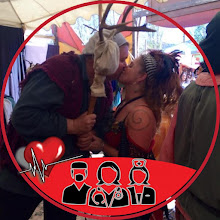While staying with friends for a long weekend out of town, I had a planned visit from a girlfriend from many years ago who lived in that area who I had not seen in forever. Back in the day she played in my games a lot, and since the girlfriend of the pal I was staying with requested I run a D&D game I had asked my old friend to come and play with us. What was especially interesting is that my friend from back in the day now owned a game store in Northern Cali. So I came up with some encounters we could do in a fairly short session.
What I went with was the area around good ol’ Tegel Manor. Though the last couple of years I used a sort of prequel setting for the location, I went with full on classic haunted Tegel. There only ended up a couple of combat encounters on the roads and in the village, so the actual manor never got visited (hopefully we can finish that up some day), but in thinking about the setting, I was struck by how consistent I needed to be with it. See, in my game world maybe 30 years have gone by since any characters went to Tegel. A decent chunk of it had been mapped by a couple of parties over the early years, and many of the various NPC’s interacted with. So, would I still have Runic Rump the paladin around looking to sell the manor? Would the lich still be in the tower (though characters had routed him out decades before); would the black pudding still be in the outhouse? Should I change things to show the place had been looted before, and that all this time had passed?
See, I’ve used the same game world I created for D&D since I was a kid. The same world where over time I had adventures using many classic modules. Tegel, The Giants adventures, The Keep on the Borderlands, White Plume Mountain, Homlet. In my mind, I always thought towards keeping a certain amount of constancy. If the Steading of the Hill Giant Chief had been taken down, would a replica of it every pop up many years down the line for a different group?
Recently I have lost that desire to maintain that consistency. And why not? Over time, as my game groups come and go, I’m the only one aware of any true passage of time in the game world reality. Have I tried to maintain a certain consistency just so that, in my own mind, this can seem like a real place? That’s pretty daft.
I want to use lots of my favorite old adventures, such as Tegel, when I get back on D&D with my group. To hell with all the consistency. I’m not writing novels based on it, and I’m not maintaining internal integrity of the game world because I’m keeping meticulous journals on it over the many years. Hell, the notebooks with my notes on those old sessions are long tossed away.
My old comic collecting background is helpful for that. If you love a universe, such as Marvel, you have to accept a certain amount of retconning. Tony Stark originally had his origins as Iron Man in the Korean Conflict. Then Vietnam. Then The Gulf War. Ben Grimm was a WW2 veteran. Now I don’t think he is the vet of any war. These things are fairly minor, and the universe moves forward.
But I’m wondering how much other DM’s with long time game worlds of their own have done to maintain internal consistency of the game world. Would they go so far as to refrain from ever using the same module, as is, a second time even if it is for different players? Or is that just some weird conceit unique to me?







I can speak from a player who's played in a longtime consistent campaign (Rob Conley and his Majestic Wilderlands). I enjoy knowing the depth of the world I'm running around and the only way you can capture the textures and depth of a world is keep it consistent. Maybe there is another way, but I don't know how. Rob has run the same module in his world. When he does this its usually with a different party. But there are times when we revisit an old spot, it may be thirty years down the timeline and with different characters and that place will have changed and change hinged on what our past character have done. Its a pretty cool. As a player I enjoy it and after three decades you would think I get tired of it, but I don't.
ReplyDeleteThat's an interesting question that has a lot of potential answers...
ReplyDeleteThe historian in me cries out for some continuity, but the fantasist calls for...uh whatever works in the "moment". You know what I mean?
The longest campaign I've played in was Greyhawk back from 7th grade through University. And that definitely had canon that was defined by our past actions. But as the years wore on, it changed on occasion dependent upon the whims of the group. Which we attributed to "fantasy". ;-)
I'd say though that it's definitely based upon the longevity of the group. If you play in a world as a group for a long time, even if it's just one person that's the common thread, then it's fun to keep some relevant history. But if the group is continuously changing, then the only one who could care is the DM.
I'll admit, some times it makes me cringe when I change things that have seemed immutable due to past player actions. But in the long run, like you say, who gives a flip?
Rock on brother.